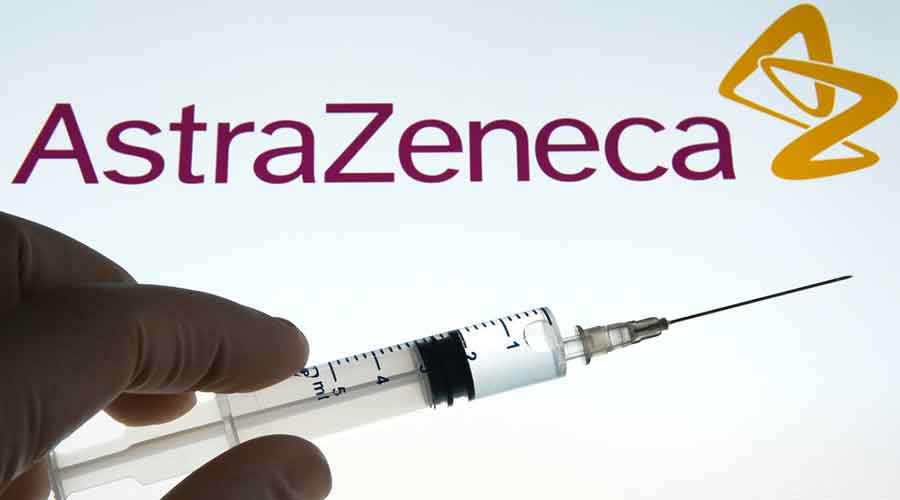Britain’s Medical and Healthcare Products Regulatory Agency (MHRA) has said that of the 18.1 million people given the Oxford-AstraZaneca vaccine between December 9 and March 24, 30 developed blood clots and seven died.
Seeking to reassure the public that no link had been established between the blood clots and the Oxford vaccine, the MHRA’s chief executive, Dr June Raine said: “The benefits of Covid-19 vaccine AstraZeneca in preventing Covid-19 infection and its complications continue to outweigh any risks and the public should continue to get their vaccine when invited to do so.”
However, research is being done to determine if there is a link or the blood clotting cases are a coincidence.
The world, especially developing nations, is depending on the Serum Institute of India which is manufacturing the Oxford vaccine under licence from AstraZeneca and an agreement with Oxford University.
Concern about the Oxford vaccine has led Germany, France, the Netherlands and Canada to restrict the vaccine’s use only to older people.
The MHRA confirmed this week there had been “22 reports of cerebral venous sinus thrombosis (CVST) and 8 reports of other thrombosis events with low platelets”.
The British Society for Haematology has issued new guidance for doctors, amid concerns that cases of blood clotting could be linked to a condition known as thrombocytopenia. It involves patients who have low numbers of platelet cells, needed for clotting, in their blood.
The guidance states: “An expert team of our peers have recently been involved in diagnosing and managing a rare syndrome of thrombosis associated with low platelets which have been reported in a few cases. At the moment, any causal association with coronavirus vaccination has not been established.”
To date, 31,301,267 people have had a first vaccine dose in the UK and 4,948,635 two doses. But while the vaccination has been high among white people and Indians, it has been significantly lower among Pakistanis, Bangladeshis, and those of Afro-Caribbean origin.
Prof. Chris Whitty, England’s chief medical office, told a Royal Society of Medicine webinar: “Blood clots, are they happening? Yes, they certainly are happening. Are they causal? Case unproven, but I think we should keep an open mind and assume they may well be until it’s actually proven otherwise.
“The incidence is clearly incredibly low. For anybody who has a significant risk of getting Covid, the risk benefit is wildly in favour of vaccination — if you’re, let’s say, an 85-year-old diabetic with liver failure.
“The closer you get to someone who’s right down at 20 and otherwise blameless in their health, the more you have to think through these really very rare side effects, the risk benefits might get closer to parity.
“That’s gonna be true for virtually any other drug, or operation or medical intervention you can think of. There are always downsides. And what you’re always doing in medicine is balancing risk against benefits.
“From the beginning of this we have been really cautious about making a policy on children getting vaccines until we will really become confident about adults.
“And that’s not because I’m trying to protect children specifically, it’s just the children get so little problems with Covid that you therefore have to have a very strong justification to vaccination.”
Prof. Robin Shattock, an infections specialist and vaccinologist at Imperial College London, told Sky News: “It’s really important to recognise that currently there’s no link to having the vaccine and having these very rare blood clots.
“If you look in the general population the estimates are between two and 16 people per million may naturally get this type of blood clot so the association with vaccination may not be related to the vaccine itself.”
Anti-police protests
Thousands of demonstrators joined rallies across Britain on Saturday as part of a “national weekend of action” against a proposed new law that would give police extra powers to curb protests.
The Police, Crime, Sentencing and Courts bill aims to toughen measures officers can take to disperse demonstrations. On Saturday,“kill the bill” marches were held in London, Manchester and Bristol and supported by big campaign groups.
“It’s also important to recognise that one thing the coronavirus does is it really increases your risk of developing blood clots so in terms of risk and benefits the vaccine is a safe vaccine. It really reduces your risk of having these types of really rare events which have no current proven association with the vaccine itself.”
On how the UK should convince other countries of the vaccine’s safety, he replied: “It’s not really our job to persuade other countries. This is a very safe vaccine.”
The overwhelming majority of reactions have been sore arms, ‘flu-like’ illness, headache, chills, fatigue, nausea, fever, dizziness, weakness, aching muscles, and rapid heartbeat.
Sir Patrick Vallance, the UK government’s chief scientific adviser, warned it was crucial to continue with the rollout, warning that a month’s delay in vaccinating 500,000 people between 44-54 would be expected to lead to around 85 severe cases requiring hospitalisation, and around five deaths.











